Food manufacturers, farmers and consumers can change climate for goodFood manufacturers, farmers and consumers can change climate for good
It is time for the natural products industry to engage consumers in climate action and regenerative agriculture. The exciting thing is that the market is ready for us to lead, our recent research shows.

No longer is consumption a passive acquisition of stuff. Increasingly consumers consider buying something as an act that impacts others, one that requires ethical decision making.
They are willing to pay more for responsible business practices.
They are willing to pay more for responsibly produced food.
They are willing to support brands that practice environmental responsibility.
If the baby boomer generation represents the dominant perspective of yesterday and the millennial generation represents where the market is headed, we begin to see a trend line appearing across generations that suggests that consumers increasingly weigh higher order values as they make purchasing decisions.
A recent study conducted by the New Hope Network among 1,000 consumers carefully drawn to be representative of the U.S. population reveals this pattern.
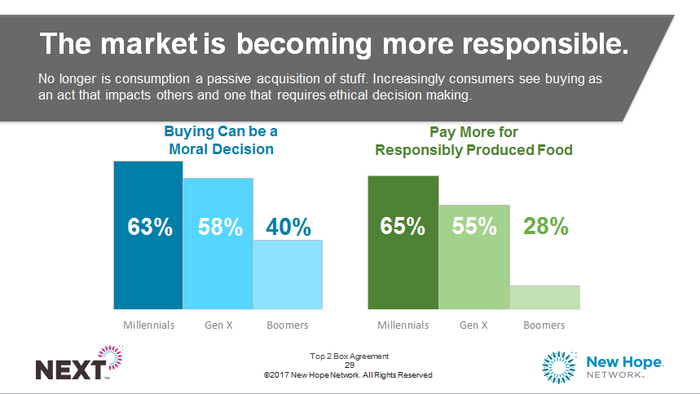
Social and environmental issues resonate and are of growing importance to consumers. We found that consumers are increasingly willing to pay more to support brands that demonstrate environmentally and socially responsible business practices. While activists among the boomer and Gen X generations may have created the momentum behind social and environmental issues, today it is the millennial consumer who is likely to drive these issues into commerce.
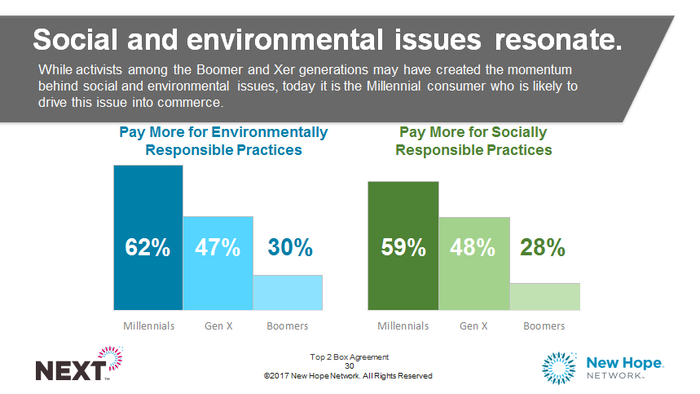
Driving change as an industry
If we can tap into this increased engagement among consumers, we can use the money spent by consumers at grocery stores to have a huge impact. Retail and consumer packaged goods manufacturers can help to funnel billions of dollars annually into regenerative agriculture to help restore balance to the climate and change the food system from the consumer all the way back to the farmer.
With combined value chain for U.S. food and agriculture representing $13.3 trillion, according to KPMG International 2013, and with food and beverage retail sales representing $769 billion annually, according to Nutrition Business Journal 2016, the potential is huge.
We at New Hope Network wanted to answer this question: How do we build demand for regenerative agriculture? We set out to explore awareness, receptivity and potential barriers to adoption of regenerative agriculture. Using the resources of the New Hope Network and support from Kiss The Ground and Penton Agriculture, we surveyed three populations: 500 U.S. consumers, 400 U.S. farmers and 100 executives from natural foods product manufacturers.
One of the first things we discovered was that climate change deniers appear to be a minority and relatively few farmers, manufactures or consumers are totally closed-minded to the reality of climate change. We found that there are more than enough farmers, manufacturers and consumers who are already concerned about climate change to fuel the demand for regenerative agriculture. The majority believes climate change is real or answered the survey in a way that suggests they are at least open to the argument: 75 percent of farmers, 95 percent of natural foods manufacturers and 82 percent of consumers are open or believe climate change is real.
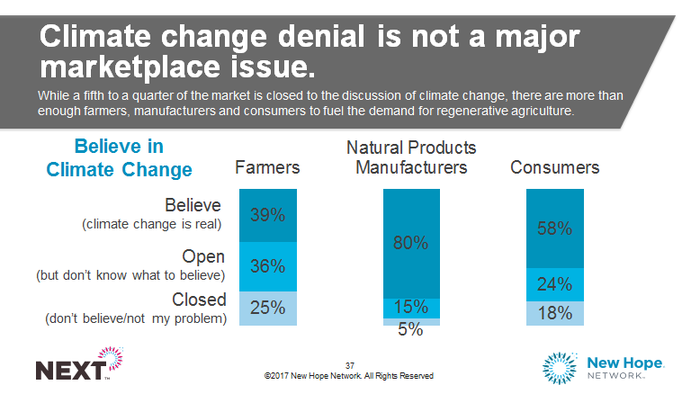
However, education is needed. Agriculture is second, only to transportation, in its contributions to greenhouse gas emissions. Yet most, even farmers, don’t realize the impact that agriculture has on climate. In fact, our farmers may need the most education; only 11 percent of them identified agriculture as a major contributor to greenhouse gas emissions.
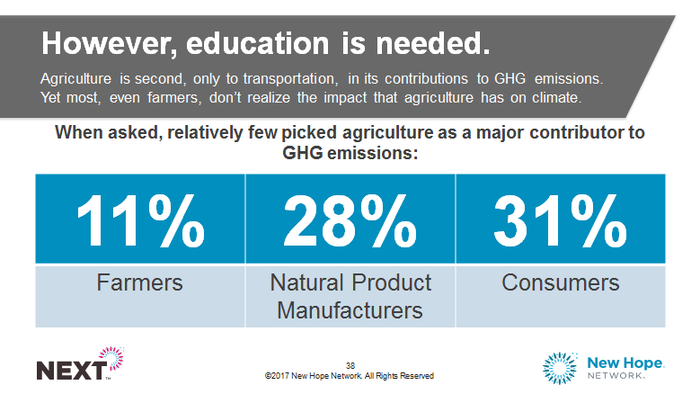
Next, we more directly explored whether our survey respondents believe that there was a connection between the foods that we grow, make or eat and their impact on climate change. It appears that even though they aren’t currently aware of the connection between agriculture, food and climate change, most farmers, manufacturers and consumers are open to learning about the connection.
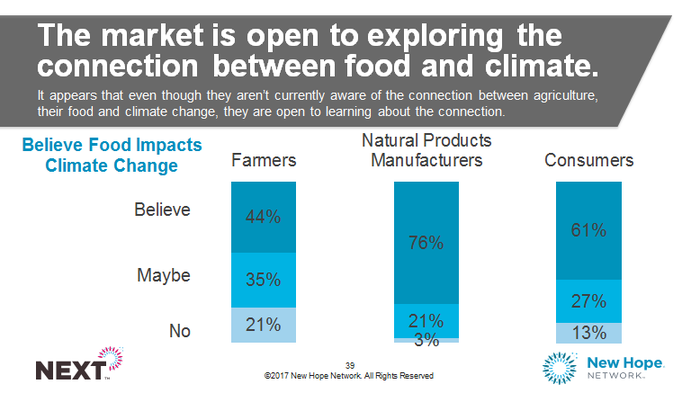
Getting even more specific in our exploration, we find good news as significant portions of the market could be motivated to take action. We asked: “If someone told you that food grown using regenerative agriculture practices could pull carbon out of the air and help reverse climate change, would you believe him or her?” What we learned is encouraging: 52 percent of farmers are open to this idea and would consider shifting production methods. Meanwhile, 82 percent of natural products manufacturers and 60 percent of consumers would consider changing sourcing practices or purchasing habits.
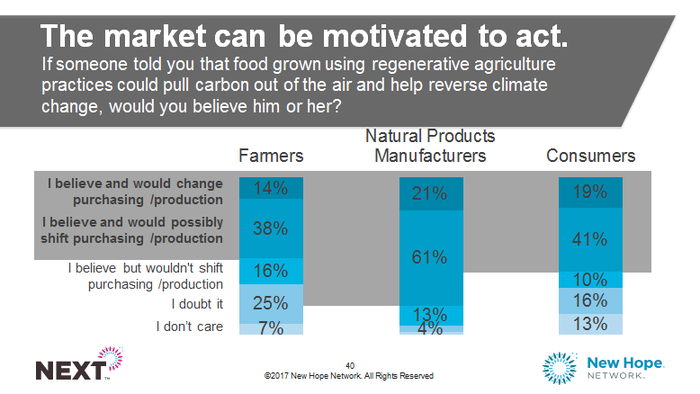
Build demand; change climate
One scientific estimate suggests that if we can convert 22 percent of arable land to regenerative agriculture, we could capture all human-caused carbon emissions and return atmospheric carbon levels to preindustrial levels in about a decade.
To build demand, we will need to first build awareness and understanding of the issues. These data suggest that consumers are ready, progressive manufactures are eager, and half of U.S. farmers would consider the shift. We can do this! We just need to build the demand.
Save
About the Author
You May Also Like



